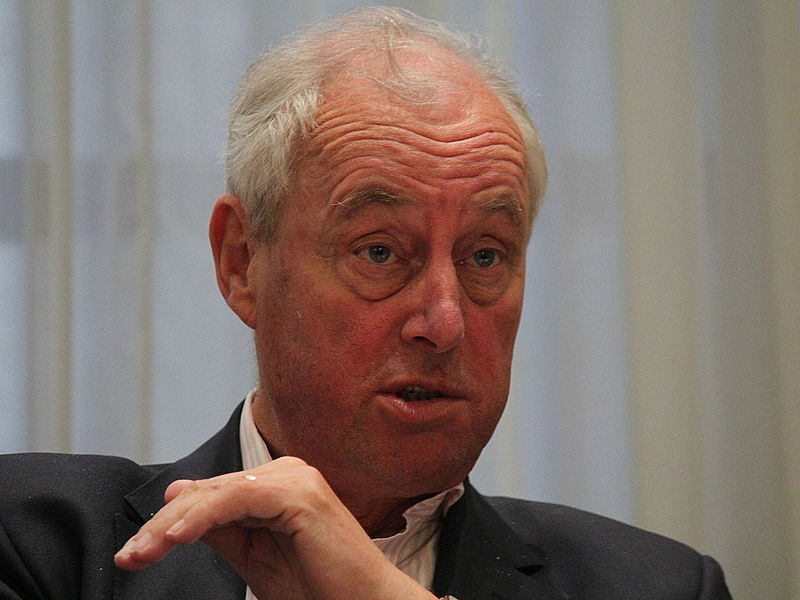Tim Yeo – 2004 Speech at Conservative Party Spring Conference
Below is the text of the speech made by Tim Yeo on 6 March 2004.
Welcome to this session – delighted to have David Davis and Shailesh Vara with me. You’ll be hearing from them soon and later from four of our outstanding PPCs.
“Young and hopeful” – I think that includes us on the platform.
It certainly includes most of you in the audience.
But it’s really the millions of young people who are the future of our country.
Who are being let down by this Labour Government.
We can all remember Tony Blair’s promise that education, education, education would be their priority.
Seven years later what has Labour delivered?
Take class sizes. An important issue for parents.
Labour promised to reduce them.
But the number of secondary school classes with 30 pupils or more has gone up by more than half since 1997.
That’s 130,000 more young people in classes with over 30 pupils than when Tony Blair gave that pledge.
What about exam results?
Ministers try to persuade us standards have risen.
But the truth is that one in three 11 year-olds leave school unable to read, write or count properly.
That’s a fact that ought to shame even Tony Blair.
And here’s another one. Last year more than 33,000 young people left school without a single GCSE.
Maybe that’s partly because the number of pupils bunking off from school has risen more than a fifth since 1997, despite more than £600 million of spending on various Ministerial initiatives and gimmicks.
For those who are at school the situation inside the classroom isn’t always good. According to the teaching union NASUWT there’s an attack on a teacher every seven minutes.
A year ago a poll showed that one in three teachers are considering leaving the profession within five years, because of the target-driven culture and lack of discipline.
And for youngsters going to university, Labour’s broken promises on top-up fees means they’ll start their working lives burdened with huge debts.
As for bureaucracy, under Labour non-teaching staff are recruited faster than teachers.
So Tony Blair’s school report is not good.
Meddling Ministers.
Money wasted.
Frustrated teachers.
Stagnating standards.
So much for Labour.
What will we do to put this right?
Our plan is radical. It has three elements.
First, we believe it’s time to give pupils and parents much greater control over how the Government spends their money on their children’s education. I’ll come back to this in a moment.
Second, we will give schools more freedom. We know it’s the commitment of teachers that determines the quality of education.
It’s time to get the target-obsessed bureaucrats off their backs.
To set teachers free.
To be accountable first and foremost to parents.
Free to restore discipline in schools and stop the small minority of disruptive pupils from wrecking the chances of their classmates.
Free to do what they do best – teach.
Which brings me to the third element.
Restoring confidence in standards.
Whatever the spin about better exam results, we know Labour has downgraded the system with its culture of prizes for all which undermines students’ real achievements.
Universities and employers tell the same story of falling confidence in the qualifications young people acquire at school.
We will make the Qualifications and Curriculum Authority institutionally independent like the Bank of England, to prevent political manipulation.
We will address other problems too. Wearing my health hat for a moment, I know that physically active young people are healthy too.
Because of that we will bring sport back into the schools, something Labour has been too busy flogging off school playing fields to attend to.
As a parent myself I know what benefits sport can bring.
Labour’s failures are not confined to schools.
Our universities are under-funded.
Labour’s solution will saddle students with huge debts.
By contrast, we will keep our promises on top-up fees and tuition fees, while giving universities the cash they need.
That’s good news for students and universities. Bad news for Labour MPs who have to explain why they broke their manifesto promises.
And under the Conservatives universities won’t be told by yet another bureaucrat, appointed by the Minister, who they can admit and who they can’t.
But fixing the funding of our universities is not enough.
We need vocational training that stimulates and skills up those young people who don’t go to university.
Labour’s system of vocational training is an expensive mess – respected by neither students nor employers.
Later this year I will set out our Conservative framework for skills training which will address this fundamental failing, a failing that becomes more and more critical as international competition for jobs and investment intensifies.
Let me close by returning to my first element – the core of our strategy to improve standards in schools.
The Pupil Passport.
The right for every parent to choose the school their child goes to.
Take the example of a child in an inner city borough, with two secondary schools in the vicinity, one good and one bad.
Currently if the good school is full and the bad one has empty seats then parents may be compelled by the surplus places rule to send their child to the bad school, regardless of their wishes.
The only way parents can avoid this is to appeal against the decision.
But although appeals have risen 50 per cent since 1997, only a third are decided in the parents’ favour.
The Pupil Passport means that child would be able to attend the good school, which itself could expand.
I can announce today, following Oliver Letwin’s speech setting out the spending plans of the next Conservative Government, and confirming that extra cash will be available for schools, that the Pupil Passport will not be confined to inner city areas as we originally envisaged.
Instead it will be rolled out progressively across the whole country.
Because we want every family to be empowered.
To have the choices which in the past have been available only to the better-off.
People who could afford to move to the catchment area of their favoured school.
Under the Conservatives you’ll be able to go to the right school even if your family lives in the wrong street.
Good schools will attract more pupils.
And since every girl or boy who is accepted by a school will have funding that goes automatically with her or him, that school will be able to expand in response to demand.
A popular faith school, for example, within the maintained sector, will be able to grow. So would a successful comprehensive.
In some areas, completely new schools will spring up. The other side of this coin is that schools which few parents choose for their children will find their numbers decline.
That will put pressure on budgets.
It will provide a spur to encourage those schools to improve.
No longer will they be able to rely on the LEA to ensure that their classrooms are filled with youngsters whose parents have been ordered to send them there.
Unlike Labour a Conservative Government will not reward failure.
Because we will abolish the surplus places rule.
The rule which enables the council to decide the school your child goes to, even if you know it’s the wrong one.
We are talking to local government colleagues and others about what this means for the future role of LEAs.
And about how money will be allocated.
About how the value of the Passport will be set.
Our aim is to give every family the power now enjoyed by a few.
Because we know the power of choice is the power to force improvement.
At the next General Election we will offer the country a clear choice.
Either continue down this Labour path of stagnating standards where Ministers know best, where you take what you are offered. Don’t you dare ask for anything different.
An education system in which the State looms too large and people are too small.
Or follow the new Conservative path.
Bigger citizens who have more control. Where you choose what you want.
A path which leads to higher standards.
Transforming the way public services are delivered.
That’s the choice we’ll offer the next generation of young and hopeful Britons to help fulfil their aspirations.
Together our task is to help them choose the right option.


